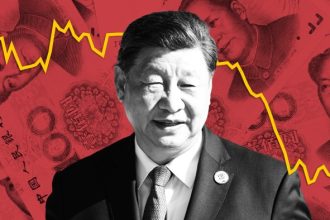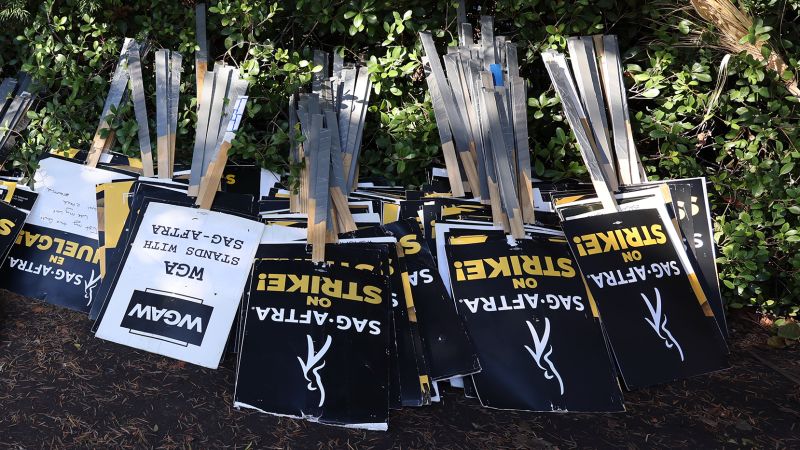Editor’s Note: A version of this article first appeared in the “Reliable Sources” newsletter. Sign up for the daily digest chronicling the evolving media landscape here.
Around 5pm ET on Wednesday, the heads of the major Hollywood studios went to the actors’ union with a not so subtle ask: Let us know by 8pm ET whether or not you accept the deal we have put on the table to end the strike.
For more than two hours, the studios did not have an answer. In complete silence, the clock loudly kept ticking closer and closer to the 8pm deadline. Then, suddenly, with only minutes to go until the cutoff, the studio bosses got their answer: SAG-AFTRA, the union that represents the 160,000-some actors, had accepted the deal.
The tentative agreement, which officially ends the strike at midnight, concludes one of the most painful and disruptive chapters in Hollywood’s history, one defined by work stoppages that shut down production across the industry for months and raised existential questions over the future of the entertainment business.
Suffice to say, there is a lot of relief in Tinseltown. Relief among the big four studio chiefs, made up of Disney’s Bob Iger, Warner Bros. Discovery’s David Zaslav, Netflix’s Ted Sarandos, and NBCU’s Donna Langley. Relief among the actors, who will finally get back to work. And relief among the other unions and workers who rely on the hum of the Hollywood machine to make ends meet.
The deal couldn’t have come soon enough. As one person familiar with the matter, who requested anonymity to speak candidly, told me on Wednesday, prolonging a deal “would have been like crossing another rubicon that would have been a huge financial blow to everybody.” That is because the studios need to quickly get production up and running to ensure television shows can return in January for a salvaged half-season and summer blockbusters can be cranked out in time for next year.
“There was just an incredible amount of pressure because of the schedule,” the person said. “They were staring over the precipice of a canceled season and the inability to make summer movies.”
The terms of the deal, of course, have not been fully disclosed. That will come later during the official ratification process. But SAG-AFTRA is celebrating, saying that it is “thrilled” with the agreement.
“In a contract valued at over one billion dollars, we have achieved a deal of extraordinary scope that includes ‘above-pattern’ minimum compensation increases, unprecedented provisions for consent and compensation that will protect members from the threat of AI, and for the first time establishes a streaming participation bonus,” SAG-AFTRA said in a message to members.
The studio chiefs believe they did deliver on everything SAG-AFTRA wanted. “We didn’t just come toward you, we came all the way to you,” Sarandos had told the union on Saturday, when the studios presented their offer, Deadline reported. And Zaslav had effectively confirmed as much on Thursday when he addressed investors on Warner Bros. Discovery’s earnings call, saying the studios’ offer “met virtually all” of the union’s goals and represented “the highest wage increase in 40 years.”
While Hollywood might be rejoicing in the immediate wake of the deal, there are still plenty of challenges that will need to be overcome. To get television shows back in January and keep film schedules to where they are, studios will need to quickly restart production.
And there is much work ahead to make that happen — for everyone. As the person I spoke with on Wednesday said, Hollywood is now “extremely focused on getting everybody back to work and moving forward and making sure the industry is OK.”
Read the full article here





